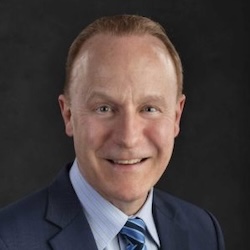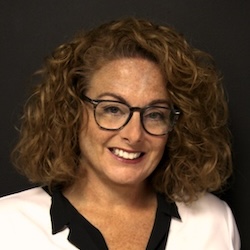Difficult market for underwriting hinders sales of local Passport spots

PBS Reno
“Classical Tahoe,” PBS Reno’s performance series, is underwritten by a financial firm that also sponsors a local music festival.
National rollout of local underwriting spots on PBS Passport opened up a new sponsorship category for stations, but the hoped-for uptick in sales hasn’t materialized yet.
Reasons for that vary by station, but one of the biggest barriers is a difficult market for sponsorships overall. Another is the limited reach of Passport messages for stations in smaller markets.

For WPBS in Watertown, N.Y., Canadian businesses and cultural organizations that want to entice upstate New Yorkers to cross the border for a day out or a performance are pulling back. GM Mark Prasuhn said ongoing “trade difficulties” between the U.S. and Canada have slowed underwriting buys from Canadian clients.
The station, a TV-only licensee, derives 28% of its revenue budget from federal funding. With the Trump administration’s proposals to zero out CPB’s appropriation, the downturn in sponsorship revenue is concerning.
“We’re pretty dependent on our Canadian audience,” Prasuhn said. “The exchange rate has deteriorated over the past year, and that’s also had some impact. It’s not a huge thing, but it’s a bit of a compounding … factor on top of the potential for the federal funding cut.”
Knoxville-based East Tennessee PBS faces similar challenges with underwriting. “We’ve seen a great pullback as far as small businesses even wanting to promote themselves at all,” said Barbara Shipley, chief development and marketing officer. Uncertainties surrounding federal funding have hampered efforts to get the most revenue out of Passport underwriting, she said.
WPBS and East Tennessee PBS aren’t alone in their struggles with underwriting sales. Small, mid-size and large stations haven’t fully recovered from the downturn that began during the COVID-19 pandemic and affected both local and national sponsorships. Sales managers at some stations shifted their focus to retaining their most loyal underwriters rather than seeking new clients.
Station revenue data reported to CPB show that public TV stations earned $173 million from underwriting sales in fiscal year 2023, the most recent available. That’s a 10% decline from FY19, which includes the period before the pandemic. By FY21 CPB reported business revenues for TV stations reached a low point of $161 million.
Declines in pledge revenues and sustainer gifts built pressure for new revenue strategies, including the initiative to introduce stations’ local membership and underwriting spots on the PBS video app and Passport streaming platform.
A pilot program first opened Passport up for those local spots and new digital sales opportunities. Full rollout began last year through the “Local on National” initiative, in which sales directors from early adopting stations advised sponsorship teams at other stations as they implemented the program. “Local on National” refers to local underwriting messages being inserted into preroll streams of national programs.
Even though Passport usage can vary widely and sales have been slow, sales representatives have said the local messages on Passport are an important product to offer their clients.
“This does not at this point replace any sort of existing revenue streams,” said Jerry Liwanag, PBS VP of fundraising programming, during a Tuesday session at the Public Media Development and Marketing Conference in Philadelphia. “It’s there to reinforce your local brand and your community work.”
‘Clients appreciate the flexibility’
PBS Reno in Nevada participated in the 2022 pilot program for Local on National. As a small-market station, PBS Reno’s Passport viewership is too small to deliver a sizable number of impressions. Even so, underwriting clients want to be featured next to Masterpiece, which attracts loyal fans of British drama, Passport’s most popular genre, according to Diane Barrett, community partnership director.

For PBS Reno, the sales potential for Passport underwriting is limited, but the effort is still worth it. “If we had millions of viewers … we could make more money off it, but it’s absolutely an excellent additional revenue stream,” Barrett said. “We still have decent viewership … on linear TV … but as things are changing, the streaming is definitely becoming more important.”
Local underwriters value the flexibility of being able to create spots for specific programs, Barrett added. A financial firm that sponsors the Classical Tahoe Music Festival also underwrites Classical Tahoe, an original PBS Reno production featuring local orchestral performances.
“It’s not a show that runs 12 months a year,” she said. “But when it does air, they want to be around that.”
In Los Angeles, Nielsen’s second-largest TV market, PBS SoCal has underwriting relationships with nonprofit arts organizations, health-care providers, higher-education institutions and statewide government agencies. This clientele mix is typical for public TV stations, regardless of market size.
“Clients appreciate the flexibility and reach provided by our diverse media offerings,” said Robert Dea, VP of corporate sponsorship. Some PBS SoCal underwriters ask to sponsor specific programs on Passport, including children’s programs, Great Performances, PBS News Hour and British dramas.
“With Passport, a lot of the spikes in revenue come down to shows,” said Andy Trimlett, PBS SoCal senior director of digital and on-air fundraising. “That’s what brings people in. The trick is keeping them there.”
The marketing dynamics for Passport are similar to sponsorship sales for programs on linear broadcast channels, meaning underwriters want their messages to be seen by the largest possible audience, Trimlett explained. For on-demand platforms like Passport, stations with the largest pool of potential viewers have advantages in attracting sponsors.
When evaluating the performance of Passport, especially regarding revenues, Trimlett pointed to its original value proposition as a membership premium for the streaming era.

“One critical point to understand is that every station in the country (including ours) is undercounting Passport revenue,” he wrote in an email. “We all count the revenue that comes in on Passport donation forms as ‘Passport revenue.’” But that tracking methodology misses everyone who “sees a pledge host talking about Passport, then, as instructed by the pledge breaks, goes to the website or calls the phone and donates.” Those donations aren’t counted as Passport revenue, even though the Passport pitch motivated them to give.
A survey of PBS SoCal donors who contribute through the station’s website includes the question “How much of a role did PBS Passport play in your decision to give?” Trimlett said. “In 2024, 76% of online donors reported that Passport either ‘played a big role in’ or was the ‘primary reason for’ their decision to give.”
That 76% excludes survey respondents who donated on a Passport donation form, he added. “So even without counting the contributions that stations traditionally count as Passport revenue, the overwhelming majority of our online donations were inspired in no small part by Passport,” he said.
During the PMDMC session on Passport underwriting, PBS Director of Sponsorships Matt Vogrin presented data about the impressions garnered for local spots. Station members delivered the vast majority of impressions for local messages — at 76%, down 4% from last year. But impressions among nonmembers is 12%, up 2%. The data didn’t capture which audience segments account for the remaining 12% of impressions for Passport messages.
“These aren’t huge changes, but I think it’s rather encouraging,” Vogrin said. “It suggests more nonmembers are engaging with PBS digital content.”
‘Our small communities rely on us’
Anchorage-based Alaska Public Media started offering local underwriting messages on Passport in February 2024. Clients who added those digital spots include a national oil and gas company, an independent toy store, an in-home service care company, a local restaurant group, an air cargo company and the University of Alaska, according to Cheryl Austin, director of corporate support.
As a dual licensee network, Alaska Public Media earns more underwriting revenue from its radio service compared to television, Austin said. That’s primarily because it takes longer to produce video spots for TV.
Like other small stations, Alaska Public Media doesn’t have a “gigantic amount of impressions” for its Passport accounts. Still, Austin sees growth opportunities for underwriting overall and said corporate support revenues have increased slightly from last year.
“It might have something to do with our current political climate and people really wanting to make sure their stations are supported,” Austin said. “We are a rural station that serves rural communities, and a lot of companies wanted to step up and support. Our small communities rely on us.”

When Arizona PBS began selling local sponsorships for Passport and its PBS Kids live stream, “a lot of customers … jumped on board as soon as those solutions were available,” said Heather Kivatinos, director of sales and media operations. “Those particular underwriters were already investing in broadcast. They know the media is fragmented, so they wanted to meet audiences in both.”
Most Arizona PBS underwriters book “run of site” messages that appear across all Passport programs, including marquee programs like American Masters and Nova, Kivatinos said. Clients who want to reach a specific audience or more viewers can also sponsor specific programs or genres. One of the water companies Arizona PBS works with booked a sponsorship for Hope in the Water, hosted by Martha Stewart, Baratunde Thurston and Shailene Woodley, which had a sustainability focus.
It’s important to set clear expectations about Passport’s reach with underwriting clients, Kivatinos said. For Arizona PBS, most Passport impressions come through connected TVs, which changes how many viewers will be exposed to underwriting messages.
“On connected TV there’s no clicks, because it’s coming through your smart TV or connected device,” Kivatinos said. “You’re only going to be able to deliver impressions on the different assets that are clickable, like tablets, smartphones and desktop. But even with those three categories, we’re yielding a really high clickthrough rate, so you just need to make sure you educate the client that it’s a bit different than a banner ad or other digital assets.”

Shipley at East Tennessee PBS said her station had a good start with its local underwriting program and described how a real estate agent boosted sales by $2 million after their sponsorship messages had been featured for just two months on Passport. But because of the broader pullback in sponsorship sales and uncertainty over federal funding, East Tennessee PBS is in the same position as other stations, wondering when the underwriting sales might pick up — and what it will take for that to happen.
Fortunately, some of Shipley’s clients have told her they’ll continue to underwrite because their values are aligned with what public television does for the community. Their motivation is not just “I want more feet in the door at my business.”




